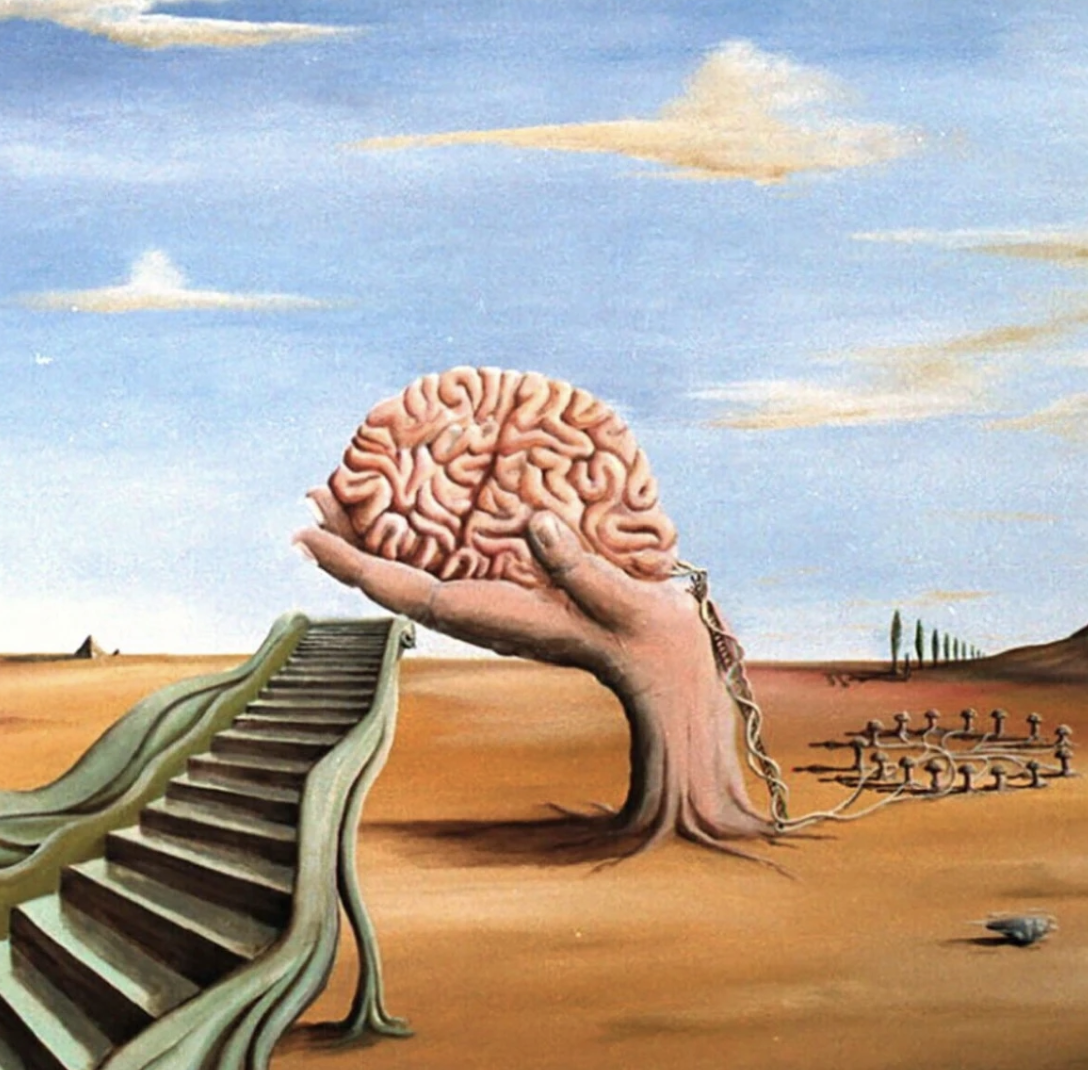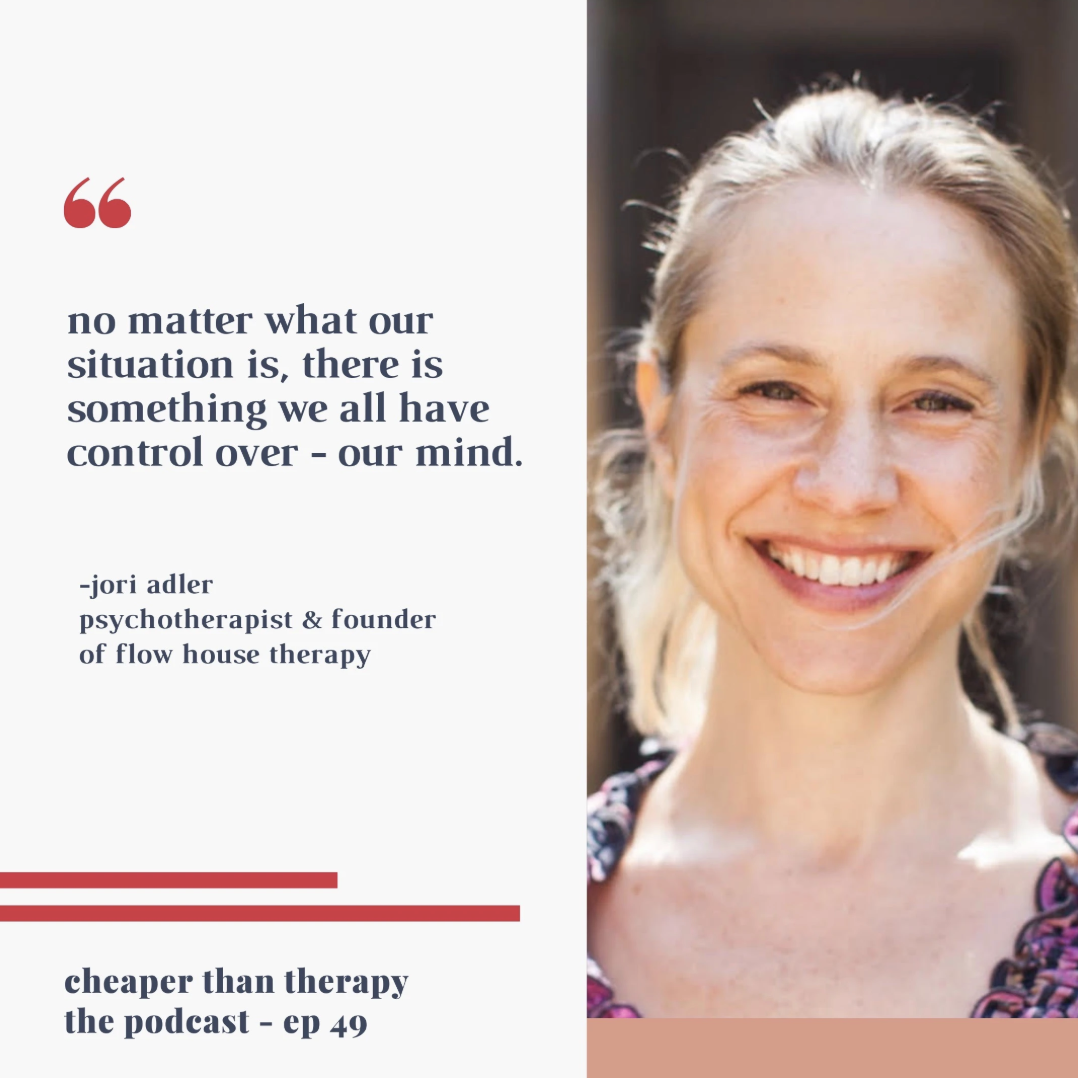Stop the Seeking Cycle
Mammals are wired to look for novelty in the environment, a behavior called "seeking." Your brain is wired to seek and it gets a dopamine hit each time it does. Dopamine is the same neurotransmitter stimulated by drugs like cocaine and speed. It makes you feel focused, energized, and good at first, but after a while you just feel stressed, sketchy, and burnt out.
The complement to the seeking system is the reward system. Finding the object of seeking, such as food, sex, or shopping sprees, creates opiates - the drugs that calm you down, make you blissful, and unwilling to seek. The opiates counterbalance the seeking, and keep it from getting caught in an endless cycle. The trouble is that evolution did not favor animals that sat around all fat and happy - they were probably the first to become dinner for those others who kept seeking. This means that the system is rigged: there is much more desire to seek than to be rewarded. We would rather look than actually find.
Down Time for Your Brain
There are many misunderstandings about meditation. Some people think it means sitting with your legs crossed and trying not to think. But that's impossible! Your brain's job is to think -- it's not going to stop. Meditation is more about just sitting there without doing anything on purpose. It is essentially getting out of the way, and allowing the brain eventually to revert to its natural state - a kind of alert, relaxed openness. Not thinking about anything in particular, but not striving to remove thinking either.
Meditation is, in a sense, unnatural. Cavemen didn't sit around meditating. They didn't need to, because everything was much slower, spacious, and gentle. It was low impact on the brain. But with the rise of modern society (India at 500 BC), people couldn't find enough down time to return their minds to a natural state. There was too much novelty, too many new ideas, too much cool stuff to do, talk about, and see. So we can think of meditation as an unnatural way to return to a natural state.
Hardwiring Happiness: Build Your Inner Strengths
What you have in your bag as you make your way down the twisting road of life are your inner strengths. They include positive mood, common sense, self-compassion, integrity, inner peace, determination, self-esteem, and a warm heart. One third of our strengths we're born with and two thirds are developed. You get them by growing them. Great news! That means we can develop the happiness and other inner strengths that foster fulfillment, love and inner peace. But how?? Read on ...
Hardwiring Happiness: Let Be, Let Go, Let In
Imagine that your mind is like a garden. You can simply be with it, looking at its weeds and flowers without judging or changing anything. Second, you can pull weeds by decreasing what's negative in your mind. Third, you can grow flowers by increasing the positive in your mind. In essence, you can manage your mind in three primary ways: let be, let go, let in.
Hardwiring Happiness: Grow Goodness in Your Mind
The brain is the organ that learns and it takes its shape from what the mind rests upon.
What you choose to pay attention to - what you rest your mind on - is the primary shaper of your brain. And, on the whole, you have a lot of influence over where your mind rests.
What are you choosing to pay attention to?
Hardwiring Happiness: Install Positive Experiences
Here's the catch: In order to transfer positive experiences from short-term memory into long-term storage, you have to install them in the brain. Otherwise beneficial experiences, such as feeling cared about, are momentarily pleasant but have no lasting value. Meanwhile, because of negativity bias, your brain is rapidly & effectively turning unpleasant, negative experiences - feeling stressed, inadequate, hurt - into neural structure.
Father Hunger
A lack of contact with and knowledge of their father leaves children with a gaping hole in their soul, best described as "father hunger." This natural longing, if left unfulfilled, too often dooms people to relentless personal & professional dead ends in an effort to fill that hole. This usually shows up in different ways that seem unrelated to father loss: food to fill the hole; workaholism in an attempt to run away from the hole; alcoholism or drug abuse to deaden the ache from it; depression from the pain of it; the thrill of sexual promiscuity to distract from the throbbing hurt of it; or violence to act it out or to seal it over.
All father hunger springs from one main source: desertion. There are seven specific causes of father loss: death, divorce, single mothering, adoption, addiction, abuse and emotionally unavailable fathering. You could grow up in the same house with your dad and still experience father hunger.
How to be Happy
For years, the field of psychology has devoted itself to helping miserable people not be miserable. While this is wonderful, we know that Not Being Miserable is different than Being Happy. So in the last ten years, we've seen the beginnings of a science of positive psychology - a science of what makes life worth living. It turns out that we can measure different forms of happiness and figure out what helps happy people stay happy.
Everything Does Not "Happen For a Reason"
"Grief is brutally painful. Grief does not only occur when someone dies. When relationships fall apart, you grieve. When opportunities are shattered, you grieve. When dreams die, you grieve. When illnesses wreck you, you grieve.
So I'm going to repeat a few words I've uttered countless times: Some things in life cannot be fixed. They can only be carried."
Suffering = Pain x Resistance
Suffering comes when we compare our reality to our ideals. When reality matches our wants and desires, we're happy and satisfied. When reality doesn't match our wants and desires, we suffer. Of course, there's no way our reality will completely match our ideals 100 percent of the time. That's why suffering is so ubiquitous.
The key to happiness is understanding that suffering is caused by resisting pain. We can't avoid pain in life, but we don't necessarily have to suffer because of that pain. Suffering is the mental anguish caused by fighting against the fact that life is sometimes painful.
Confronting the Negativity Bias
Your brain is continually looking for bad news. As soon as it finds some, it fixates on it with tunnel vision, fast-tracks it into memory storage, and then reactivates it at the least hint of anything even vaguely similar. But good news gets a kind of neutral shrug: "Eh, whatever."
In effect, the brain is like Velcro for negative experiences and Teflon for positive ones.
Finding Pleasure in the Ordinary
Because of our brain's built-in negativity bias, we have to consciously make efforts to notice the positives. We vacuum up the smallest negative detail and overlook and take for granted the good things. To rebalance your brain, you have to actively seek anything that could remotely be positive and then soak it up into your system. It's nice to know that (1) we can change our brains and (2) there is endless opportunity to find good around us!
Be Unafraid of Your Interior Life
What would you hear if you allowed yourself to be in silence? What are you afraid to hear?
With so much external stimulation these days, it can be difficult to put the phone down, turn off the TV, quiet the chatter in our heads and tune into ourselves. However, it is by being comfortable in silence with ourselves, even for a seconds at a time, that we discover our personal power and tune into our inner voices.
Your Blind Spots?
My Public Self is what I know about myself and show to others.
My Hidden Self is what I know, but choose to hide from others.
My Unconscious Self are parts of me I do not see nor do others.
My Blind Spots are parts of me others see but I do not.
Can We Want What We Already Have?
Why does good sex so often fade even for couples who continue to love each other as much as ever?
Why does good intimacy not guarantee good sex?
Can we want what we already have?
Buddhism on Death Row
Last week I got to do couples therapy on Death Row at San Quentin State Prison.
Everything You Feel is OK
Give yourself permission to feel any combination of ways, even if they are contradictory. We're complicated beings and often have mixed and multiple feelings. We crave things we know are bad for us. We declare an opinion and then change our minds. Life is not black & white and can be chaotic & illogical. Experiment with letting the "shoulds" go and allow yourself to be and feel anything. Note: This does not give you permission to behave in any way - this is an exercise in acceptance of your feelings.
The Healing Power of Self-Compassion
An easy way to calm and comfort yourself when you're feeling badly is through soothing touch. It seems a bit silly at first, but your body doesn't know that. It just responds to the physical gesture of warmth and care, just as a baby responds to being held in its mother's arms ... If you notice that you're feeling tense, upset, or self-critical, try putting your hand on your heart, or tenderly stroking your arm or face, or gently rocking your body.













